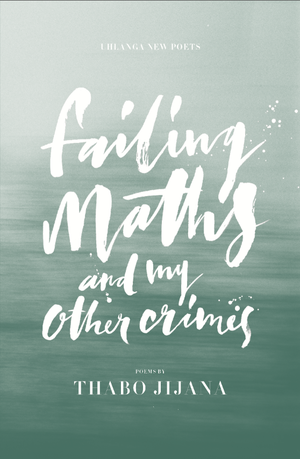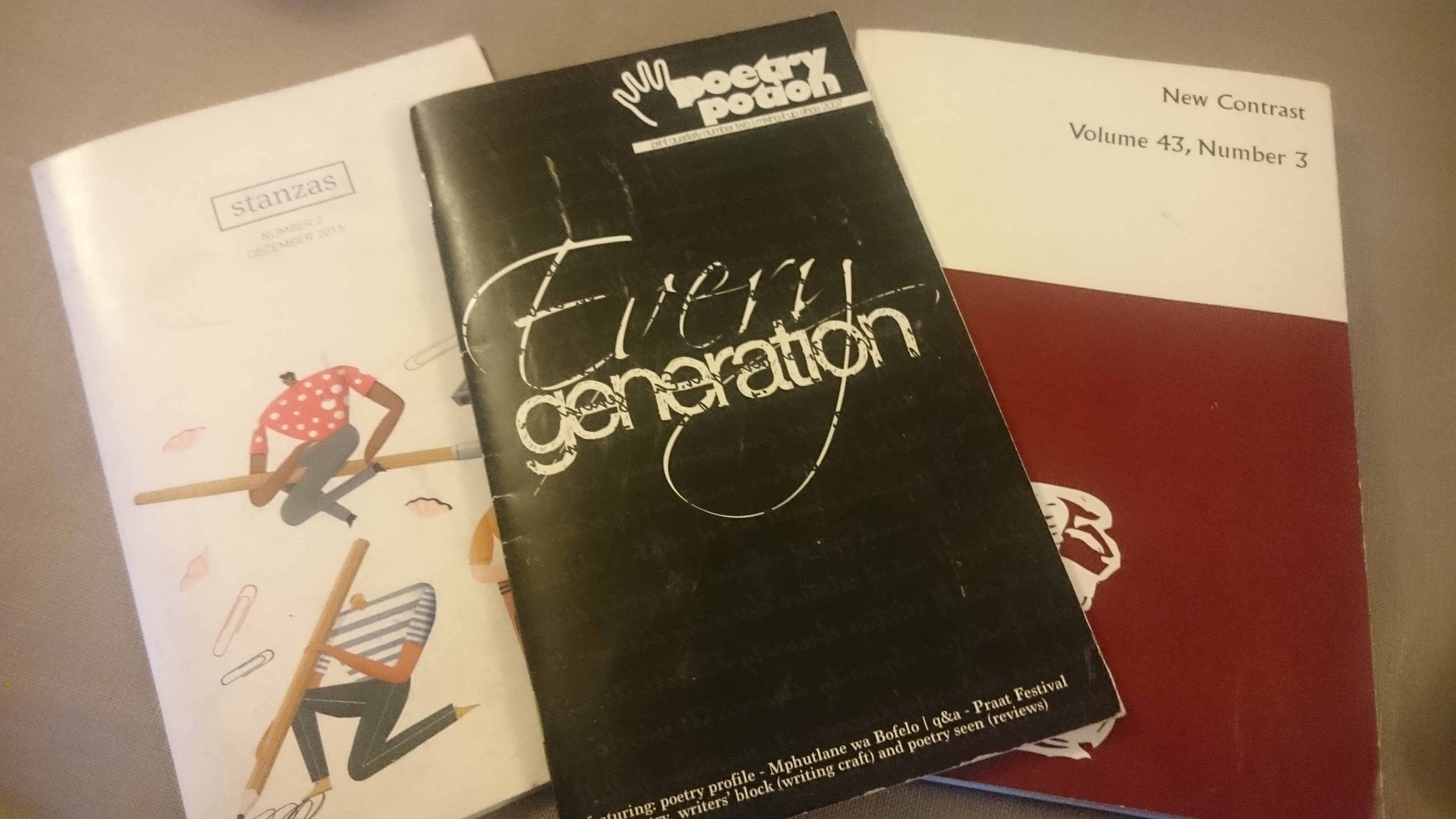failing maths and my other crimes by Thabo Jijana
-Reviewed by Pam Thompson–

Thabo Jijana, a young award-winning poet and journalist, was brought up in rural East South Africa, and now lives in Port Elizabeth. His 2014 memoir, Nobody’s Business, was about the death of his father, a taxi-driver murdered in King William’s Town during a spate of taxi-related violence.
These poems combine Jijana’s personal narratives with those of his country. His father is ever present, as is the violence in his country, whether overt or hidden. The opening poem, ‘You have no power here’, could be an address to his father; it could be to the reader, or both. It could even be the poet addressing himself, an urgent dialogue urging the bearing of true witness:
I will tell you what I know.
It won’t be what those who do you dirty
want me to say.
It won’t be nice.
It won’t be like wine.
It won’t be broadcast delayed live on the speaking box.
In ‘Monkey’s wedding’, the poet as child watches the killing of his pet goat:
Cousin Wele had one knee on the dung floor
beside the gaping abdomen,
scooping the entrails
onto a metal washbasin.
The lesson learnt is to shift perspective; from personal pain to collective necessity:
I walked out then I walked back in
to find Wele chopping the body
with a machete
and I saw that it was hard work.
Jijana’s poetry is receptive to politics and people. The stories about his own family show examples of resilience in the face of oppression. There is no danger of him turning away from life, of using poetry to make abstract pronouncements:
I pray I never take to poetry
as some people go to church
to run away from things
on the street.(‘Spilling blood’)
He continues:
I want my poetry to be empirical.
It shall suggest making love:
you will want the usualin an unusual way.
‘Empirical poetry’ is a good description of this collection: poetry which tests reality and seeks to find appropriate forms of expression. Narrative is Jijana’s strength, such as in ‘The thing about Manto and beetroot’ where being in his childhood house prompts the adult poet to recalls the night his father was murdered.
When are you taking us to
town? I will ask soon. You’ve
been promising. And if I
close my eyes, I can see him
through the archway, looking
up from his plate of chicken
liver and rice …
The details are vivid, deftly chosen. It is a long thin poem, the lines averaging four beats, and are as controlled as events of the story cannot be. Jijana brings the reader/listener up close at the beginning of ‘Banana moon’:
To see this story better, close your eyes
and picture a mud village
safely hidden in a quiet valley.
He recalls his aunt’s funeral; the spectacle of his uncle weeping,’ The only time I would ever see a man / of my family / conduct himself / this way’; his cousins, driving away straight after to go drinking elsewhere. In maturity, he had come to ‘detest the modern black funeral’,
how it is treated as though
it were another traditional ceremony
comparable only to a birthday party …
The importance of remembering the dead and honouring them is pervasive in the collection. ‘Biko’ is a long poem too, but its form sparser, more fractured, using italics to capture the evasions in the reporting of his mistreatment by the police:
when they stopped
for petrol
he was not given
a chance to get
out to stretch
his legs
In others sections, words seem to fail, or merely present simple facts:
to remain calm
for him;
soon, things
wouldn’t
bea black man
was on his own
There is humour elsewhere. In the title poem the poet draws attention both to his poem and its subject exuberantly:
An epistle in free verse isn’t as easy as it looks, especially when
you want
to address your younger self.(Failing maths and my other crimes’)
‘Failing maths’ becomes not so much a ‘crime’ but impetus for attaining the greater wisdom which each poem carries in its own way:
Nothing is worth fighting for anymore
but love and joy in your heart.
These are serious, engaged poems by a young poet who has witnessed rather too much.




